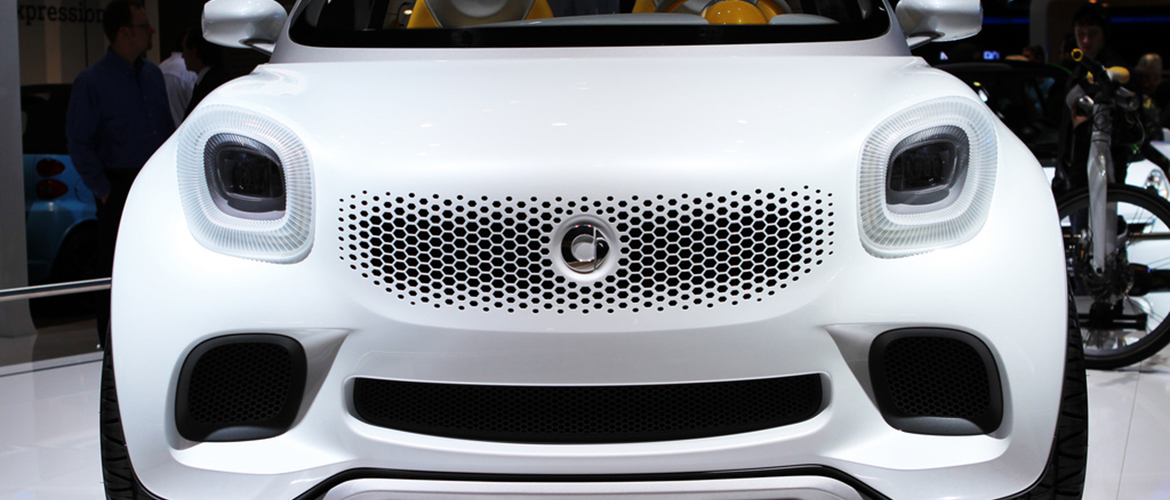 Matt Keegan, an affable automotive expert and blogger, was filling me in on some potential consequences of the recent Volkswagen debacle. The maker of the number one icon of the Stoned Age showed it was still participating in messing up minds, this time the electronic ones that controlled their Diesel cars and trucks. VW programmed the on-board computers to recognize when their vehicles were being tested for emissions and to activate the mandated emission controls the computers (illegally) switch off during normal use.
Matt Keegan, an affable automotive expert and blogger, was filling me in on some potential consequences of the recent Volkswagen debacle. The maker of the number one icon of the Stoned Age showed it was still participating in messing up minds, this time the electronic ones that controlled their Diesel cars and trucks. VW programmed the on-board computers to recognize when their vehicles were being tested for emissions and to activate the mandated emission controls the computers (illegally) switch off during normal use.
Suddenly, Keegan uttered five words that made VW’s brain surgery seem as important as skim on milk.
“Cars are smartphones on wheels,” he said.
Keegan intended his metaphor to draw attention to the complexity of the hardware and software that controls the performance and safety of modern vehicles, but his reference was more than colorful rhetoric.
Driving a smartphone on wheels ought to send a chill up and down your spine, not from the exhilaration but from the danger.
As early as 2009, security experts Charlie Miller and Collin Mulliner demonstrated how, with a simple text message, they could control “an iPhone remotely, including your iPhone’s camera, Safari, and more. It can even send messages to friends in your address book, which is where this hack becomes scariest.” Other smartphones were equally vulnerable to similar attacks.
More recently, security whistleblower Edward Snowden claimed, ”The world’s spying agencies have tools that allow them to take over smartphones with just a text message.”
Driving a smartphone on wheels ought to send a chill up and down your spine, not from the exhilaration but from the danger.
Lest you feel I’m taking a quip suitable for water-cooler conversation and stretching it until it’s thin enough to see through, Wired magazine published a story in 2015 about a pair of hackers who took control of a 2014 Jeep Wrangler. While the Jeep was being chased down the highway by an 18-wheeler, the hackers slowed the car to a crawl, speeding it up only when the truck was dangerously close. The hapless driver, who volunteered for this demonstration, was powerless to do anything about it.
We may be months or years away from self-driving vehicles, but that doesn’t mean we have time to learn to be smarter than our set of wheels. Today’s cars maintain safe distances between vehicles, panic break without skidding, stop before backing up into a vehicle, human or small animal and prevent SUVs from rolling over.
These on-board computers are making critical safety decisions and, like smartphones, are making operating at a level that’s too complex for even their designers to predict with certainty, vulnerable their computers are to an error or an attack. In other words, we have to trust our car to be right. And, as history has demonstrated, that’s not always the safest choice. All of which begs the question that if our cars can outsmart us, are the futurists right? Are we finally at the mercy of our machines?
Not exactly.
Keegan believes our salvation rests on our being smarter than our cars before we buy them.
“Watch to see how manufacturers respond to computer problems.”
In particular, Keegan said you should watch how quickly manufacturers come up with a software fix that is ready to be installed by dealers.
“Identifying the problem is only a small part of the solution. It’s almost legendary in the industry for manufacturers to announce they have identified a problem and then take four to six weeks to prepare their dealers to service the cars and fix things.”
There’s another solution, one unintentionally practiced by a friend of mine when she bought a mint-condition 1975 Mercedes Benz convertible that made me re-think my choice of spouses. “I know people who will not buy a new car again,” Keegan told me. “They’ll go back to the early 1990s before all the computer stuff came in.”
By his own admission, “Owning a 20-year-old vehicle is not a practical choice for everyone,” which led him to offer this final piece of advice.
“You have to decide how safe any car you own or buy is to drive. That’s not a decision your car can make.”
Nor would you want it to.
Start your Sunday with a laugh. Read the Sunday Funnies, fresh humor from The Out Of My Mind Blog. Subscribe now and you'll never miss a post.
Matt Keegan has spent the last 10 years writing and blogging about automobiles and the auto industry. He writes for, and publishes, Auto Trends and also contributes to Answers.com, CARFAX and NAPA Know How. Keegan lives in Cary, North Carolina.
Mind Doodle…
As the automotive industry pushes more technological advances into new vehicles, digital listening is one area where the industry has to tread lightly. The vast majority of Americans prefer to listen to AM/FM radio while they’re on the road. Take radio away and car buyers won’t hear of it.

As a former IT guy, I’m painfully aware of the weaknesses of any kind of computerized system, especially in a car. The chances of it being compromised are slim to none, but it is indeed a real possibility.
I personally think computers for engine management and basic functions are fantastic… they make engine performance and tuning a piece of cake compared to the old days.
But I draw the line with cellular and wifi connectivity. Under NO circumstances do I want my car to be able to be controlled externally for ANY reason. I’m extremely leery of services like OnStar as well. On older cars (circa 2005), they couldn’t do much. Now, they’re tied into the car’s CAN bus, and can’t be disabled without breaking the car. Even if you don’t use the subscription service, it’s still active.
Since I’m a shade tree mechanic, I’m in the camp of not buying anything newer than about 2006-7. Even that is pushing it.
My current car is a 1965 Rambler. I will drive it as long as I can get parts to keep it on the road.
The wife *did* insist I install seatbelts in it, though. 😉
Hi Jeff…
Thanks for this informative, and thoughtful, comment. So even if you don’t activate OnStar, et al., is the GPS active? Does that mean the car can be tracked at all times? If so, that ought to raise a few eyebrows (but will it).
Also, kudos to your wife for the seatbelts 🙂
–jay
Great story Jay. Another point is that when these car computers go, it can have disastrous consequences. We backed our 1998 Chrysler Town and Country out of the driveway one afternoon (okay it did have over 150,000 miles but still) it stopped and when we tried to start it again it caught fire and burned out the whole electrical system. never started again. After a month and about a grand in testing it was declared unrepairable… not the car, the electrical system. Had to buy a new car… we take good care of our cars, the rest of the car was mint.
Hi Nick…
Yes, there’s that little problem, too. What a sad ending to a mint ’98 Town and Country. Sorry to hear about it.
I’ve always found a certain comfort in mechanical things. When they fail, I’m confident (perhaps falsely so) that I can find the problem with my eyes. I may have to take things apart, but sooner or later I’ll see a broken gizmo or a loose widget and I’ll fix it. I sure can’t glance at a circuit board and find the part to replace. Not without expensive test equipment. Or a Ouija board. –jay
Great posting. Recently, I saw an article about computerized refrigerators that supply loads of consumer info to food producers and sellers, essentially making them spies in our kitchens. As to people being smarter than their computerized products, I am not convinced. Look at some of the candidates people vote for. Any partially functioning machine worth its salt could probably out think many voters.
Hi Jeff…
If I’m scared of anything these days it’s the rush toward the Internet of Things. After all the hacking of large, highly-fortified web sites (that weren’t so fortified after all), why are people in such a hurry to put their whole houses on the Internet?
The Fed computers can be hacked but not your garage door?
Seriously?
As for the voters, there are days I think a random drawing would produce better overall results than an election. –jay
Jay….This is an incredible posting. I have forwarded it to several friends who are “car guys,” as well as executive contacts I have in the automobile and ancillary industries/services sector. Great job!
Thanks Dave. I appreciate the kind words. When I spoke with Matt I realized this was a story that needed telling. Thanks, too, for sharing this with your colleagues/friends/contacts. –jay